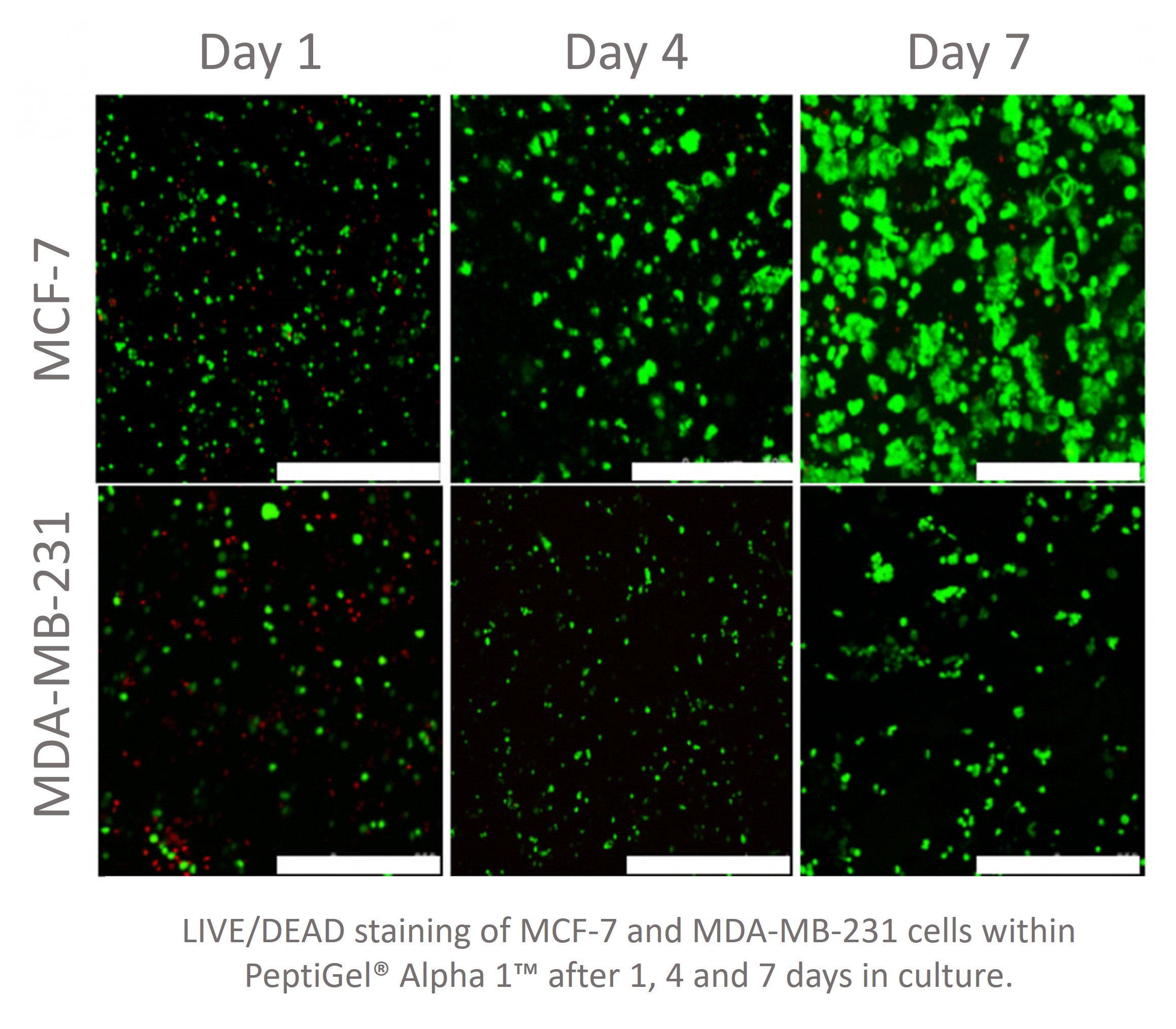Highlighted Publication
Neutrally Charged Self-assembling Peptide Hydrogel Recapitulates in vitro Mechanisms of Breast Cancer Progression

Abstract
Self-assembling peptide hydrogels (SAPH) are a popular biomaterial due to their biocompatibility with a wide range of cell types, synthetic design, structural properties that provide a more accurate 3D microenvironment, and potential for cell- and/or drug-delivery system. Mimicking solid tumors in vitro using hydrogels is one method of testing anti-cancer drug efficacy and observing cancerous cell-ECM interactions within a 3D system. In this study, a SAPH, PeptiGel® Alpha 1, was used to model in vitro the 3D breast tumor microenvironment. PeptiGel® Alpha 1 is composed of entangled nanofibers with consistent diameter and mechanical properties similar to breast cancer that more accurately mimic the stiffness of breast tumor tissue than MatrigelTM; or collagen type I. PeptiGel® Alpha 1 supported the viability and growth of the breast cancer cell lines MCF-7 and MDA-MB-231 and recapitulated key features of solid tumors such as hypoxia and invasion. MCF-7 cells in the hydrogels formed large spheroids resembling acini, while MDA-MB-231 remained dispersed. When treated with tamoxifen, PeptiGel® Alpha 1 acted as a barrier, providing drug penetration geometry similar to that in vivo, providing better prediction of the drug effect. Finally, it was observed that MCF-7 cells engulfed the peptide matrix after 14 days, highlighting a potential use in drug delivery. PeptiGel® Alpha 1 is a suitable platform for in vitro modeling of breast cancer.

